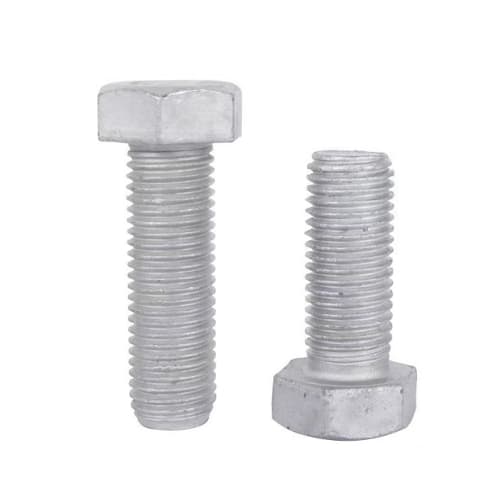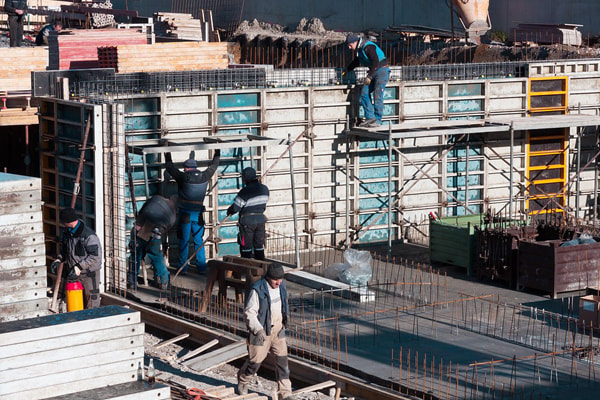How to Choose the Right Bolts and Nuts for Industrial Projects
When our overseas clients come to us, the first thing they usually ask is simple: “What bolts do I need for my project?” It sounds easy. But it’s not.
As a fastener manufacturer in China with over 15 years of experience, I can tell you—choosing the right bolt or nut can make or break a project. We’ve supplied industrial bolts to construction sites in Germany, solar projects in Australia, and heavy machinery manufacturers in the U.S. And every time, the needs are different.
If you’re a B2B buyer looking for bolts for construction or industrial use, this guide is for you. I’ll break it down using real project scenarios, practical advice, and technical tips. Let’s get started.
1. Understand the Real-World Application First
Last year, a client from the Netherlands was building a steel-framed warehouse near the coast. They initially asked for zinc-plated bolts. We stopped them right there.
Why?
Zinc-plated fasteners corrode in salty environments. We recommended hot-dip galvanized bolts instead. That small change likely saved them thousands in future maintenance.

Lesson: Before choosing a fastener, ask yourself:
- Is the project indoors or outdoors?
- Will it be exposed to water, salt, or chemicals?
- Is it load-bearing? Subject to vibration?
If you’re unsure, ask your supplier. A good industrial china bolt supplier will ask these questions before making recommendations.
2. Pick the Right Type for Your Industry
Let me give you a quick breakdown based on what we’ve shipped to clients:
- Steel Structures
We supply Grade 8.8 hex bolts to Chinese companies like Baosteel Construction, who export steel frames globally. These bolts are strong, widely standardized, and handle heavy shear loads. - Machinery Assembly
One of our clients in Turkey builds packaging machines. They use socket head cap screws for compact parts with tight tolerances. These give better torque and a cleaner fit. - Solar Projects
For ground-mount solar racks, we always recommend stainless steel hex bolts. Especially for customers in Southeast Asia and the Middle East. Stainless steel resists rust and lasts over 20 years in open fields. - Wood-to-Steel Connections
Use carriage bolts with a smooth head and square neck. We’ve used these in furniture exports to Canada.

Every bolt serves a different purpose. That’s why a catalog alone doesn’t help—you need context.
3. Don’t Guess the Strength Grade
This is critical.
Strength grade isn’t a number you choose at random. For example:
- 4.8 bolts — for light-duty tasks like fastening metal sheets
- 8.8 bolts — used in most structural applications
- 10.9 or 12.9 bolts — ideal for high-load, high-torque settings like automotive and mining equipment
If you’re working with structural loads, refer to ISO 898-1 for mechanical properties of fasteners. It’s the global standard we follow in our workshop.
Metric Bolt Strength Grades
| Grade | Tensile Strength (MPa) | Yield Strength (MPa) | Typical Applications |
|---|---|---|---|
| 4.6 | 400 | 240 | Light-duty connections, furniture, wood structures, small appliances |
| 5.6 | 500 | 300 | General machinery, medium-duty assemblies |
| 8.8 | 800 | 640 | Automotive, structural steel, industrial machinery (most common industrial grade) |
| 9.8 | 900 | 720 | Railway parts, high-load mechanical structures |
| 10.9 | 1000 | 900 | Heavy equipment, construction machinery, structural steel |
| 12.9 | 1200 | 1080 | Molds, engines, high-strength precision applications, aerospace and military uses |
In 2023, we had a U.S. client who mixed up 8.8 and 4.8 bolts for a bridge reinforcement job. We flagged it during the quote phase—and that’s why they’ve stayed with us since.
4. Coatings: Where Many Buyers Get It Wrong
Here’s a scenario: Two identical bolts. One costs $0.02 more. The only difference? One has a hot-dip galvanized coating; the other is zinc plated.
Many choose the cheaper one.
Months later, rust creeps in. Bolts seize. Projects stall. And the total cost skyrockets.
Here’s our internal recommendation sheet:
- Zinc Plated: Budget option. Indoor use only. 24-96 hours salt spray.
- Hot-Dip Galvanized: Outdoor use. Construction, solar, fencing. 400-600 hours salt spray.
- Dacromet/Geomet: Premium option. High-temp & marine environments. Up to 1000 hours protection.
Always match coating with real site conditions. We can help you test salt spray resistance before bulk order.
5. Thread Type and Fit—Small Detail, Big Impact
You’d be surprised how often buyers send us orders with mixed threads. Metric bolt, imperial nut. Or coarse bolt, fine-thread nut.
Here’s the deal:
- Coarse threads (UNC / Metric Coarse) are better for quick assembly and general use. More resistant to stripping.
- Fine threads (UNF / Metric Fine) are better for precision, tension-heavy environments.
Our Shanghai client who supplies pumps to the UK had to replace 20,000 fine-thread nuts when they mismatched their bolts.
Always double-check threading standards—Metric (M6, M8, M10) or Imperial (1/4″, 3/8″, etc.)—and match nut to bolt grade.
6. Certifications Matter—Especially for Public Projects
If you’re supplying to government, energy, or infrastructure sectors, don’t skip certifications.
We always include:
- ISO 9001:2015 for manufacturing process
- CE, RoHS if requested for Europe
- EN 15048 or EN 14399 for structural bolt systems
For public tenders in Europe, these aren’t optional. They’re mandatory.
For example, a customer in Poland was bidding on a rail project. Because our bolts had the right CE + EN docs, they won the bid. And we won a long-term partner.
7. Why Source Directly From a China Bolt Supplier Like Us
Many of our B2B clients used to buy from trading companies. Until they faced delays, mixed specs, or communication gaps.
Working directly with a manufacturer—like us—means:
- We customize fasteners to drawing
- You speak directly with the engineers
- We control quality in-house
- We give real delivery dates, not estimates
We’re not middlemen. We forge the bolts, test them, pack them, and load them into your container.
Factories like ours in Hebei yongnian are equipped with CNC machines, automatic thread rollers, and full inspection lines. You get better pricing, better quality—and fewer surprises.
Final Thoughts
Choosing fasteners might seem like a small part of a big industrial project. But from what we’ve seen over the years—it’s often the small parts that cause the biggest issues when done wrong.
If you’re sourcing bolts for construction or industrial use, take the time to consider the environment, load, finish, and threading. And work with an experienced industrial bolts supplier who can give you more than a price—they give you peace of mind.
Need Help from a Trusted China Bolt Supplier?
We’ll review your project specs, recommend the right bolts and nuts, and send free samples if needed. Just send us a message . Let’s build something solid—together.
You can also contact us directly via WhatsApp.
